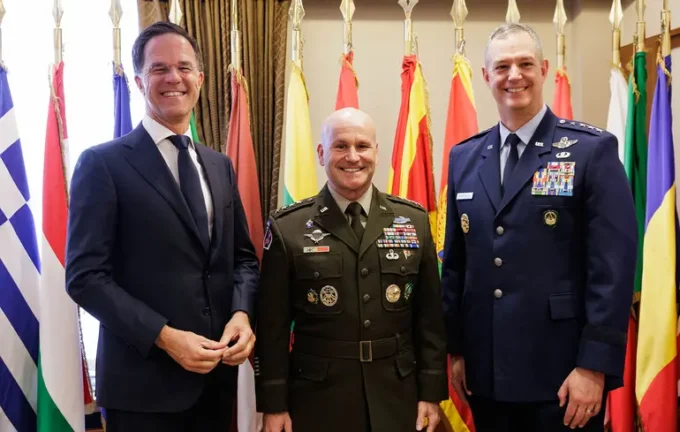A New Leadership Era in NATO: Alec G. Grinkevich Assumes Command in Europe, Replacing General Kavoli

Following extensive preparations and strategic discussions, on Friday, July 4, the NATO headquarters in Mons, Belgium, hosted a significant ceremony marking the official handover of the command of NATO’s Allied Forces Europe. During this event, General Alecus G. Grinkevich of the United States Air Force formally took command of the alliance’s military operations in Europe, a critical role responsible for planning and executing military actions across the continent. He succeeded General Chris Kavoli from the U.S. Army, who had held the position since early 2022 and distinguished himself as a competent and dedicated leader during a period of complex crises. NATO's press service noted that the transition was conducted in close cooperation among allies. Secretary General Jens Stoltenberg expressed deep appreciation for General Kavoli’s contributions, highlighting his efforts in modernizing NATO’s collective defense systems, strengthening response capabilities to Russia’s full-scale invasion of Ukraine, and bolstering NATO’s presence in the Baltic Sea region. Stoltenberg underscored that Kavoli served with honor and integrity as the Supreme Allied Commander Europe (SACEUR). Welcoming General Grinkevich, the Secretary General emphasized that his extensive experience and background as a former fighter pilot would bring valuable insights to his new leadership role. Grinkevich’s military career, marked by numerous commendations, has included operational command and strategic management in highly challenging environments. His deep understanding of modern security threats, coupled with his crisis management skills, positions him well to oversee NATO’s regional security initiatives. Experts point out that under his command, NATO will continue to actively support Ukraine, enhancing military resilience and advancing partnerships aimed at regional stability. Grinkevich has already publicly reaffirmed his support for Ukraine and its people, emphasizing the importance of unity and resilience in the face of aggression. His appointment underscores NATO’s ongoing commitment to strengthening collective defense and preparing for future security challenges, particularly in an era where European and Ukrainian security concerns are more urgent than ever. This leadership change signifies a strategic step toward reinforcing NATO's unity and operational effectiveness amidst the evolving geopolitical landscape.

